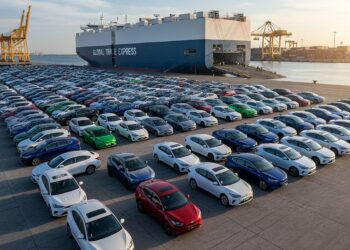YouGov, in partnership with the Freedom of Mobility Forum, revealed the results of a survey that evaluated the desire for changes in mobility habits of respondents in five countries – Brazil, France, India, Morocco, United States.
The results revealed during the annual Freedom of Mobility forum, hosted by Stellantis, showed that one in four citizens globally is not ready to make environmentally friendly transportation choices. “This is particularly noticeable in the United States, where over half of the respondents, especially from rural areas, stated they are not prepared to implement any changes,” as the study reveals.
Furthermore, although 3 out of 4 individuals are moving towards more eco-friendly options, “less than 10% have already made significant changes, signaling that we are just beginning to accelerate towards larger changes to be implemented in the future.”.
The YouGov study also reveals that six out of 10 citizens are willing to abandon transportation with “only one driver”. However, enthusiasm varies depending on the location, with India, Brazil, and Morocco leading the way. In contrast, there is 50% or less willingness in more established markets, a factor that drops to 28% in rural areas of the United States, where public transportation may be less available.
And who is leading this “green” revolution? The study indicates that it is in the hands of lawmakers and citizens, with companies coming next, except in the United States.
One should also not neglect the power of the younger generations. One in every 4 citizens globally believes they hold the key to a green future, with a significant 40% in India believing they can lead the change.
“Although young people are likely influential in promoting changes to more ecological transportation, their actions are not significantly more tangible than the rest of the population”, said Alexandre Devineau, General Manager of YouGov. “Their choices – and the resulting dynamics – will have a strong influence on the transportation challenges that need to be faced worldwide”, he concluded.










